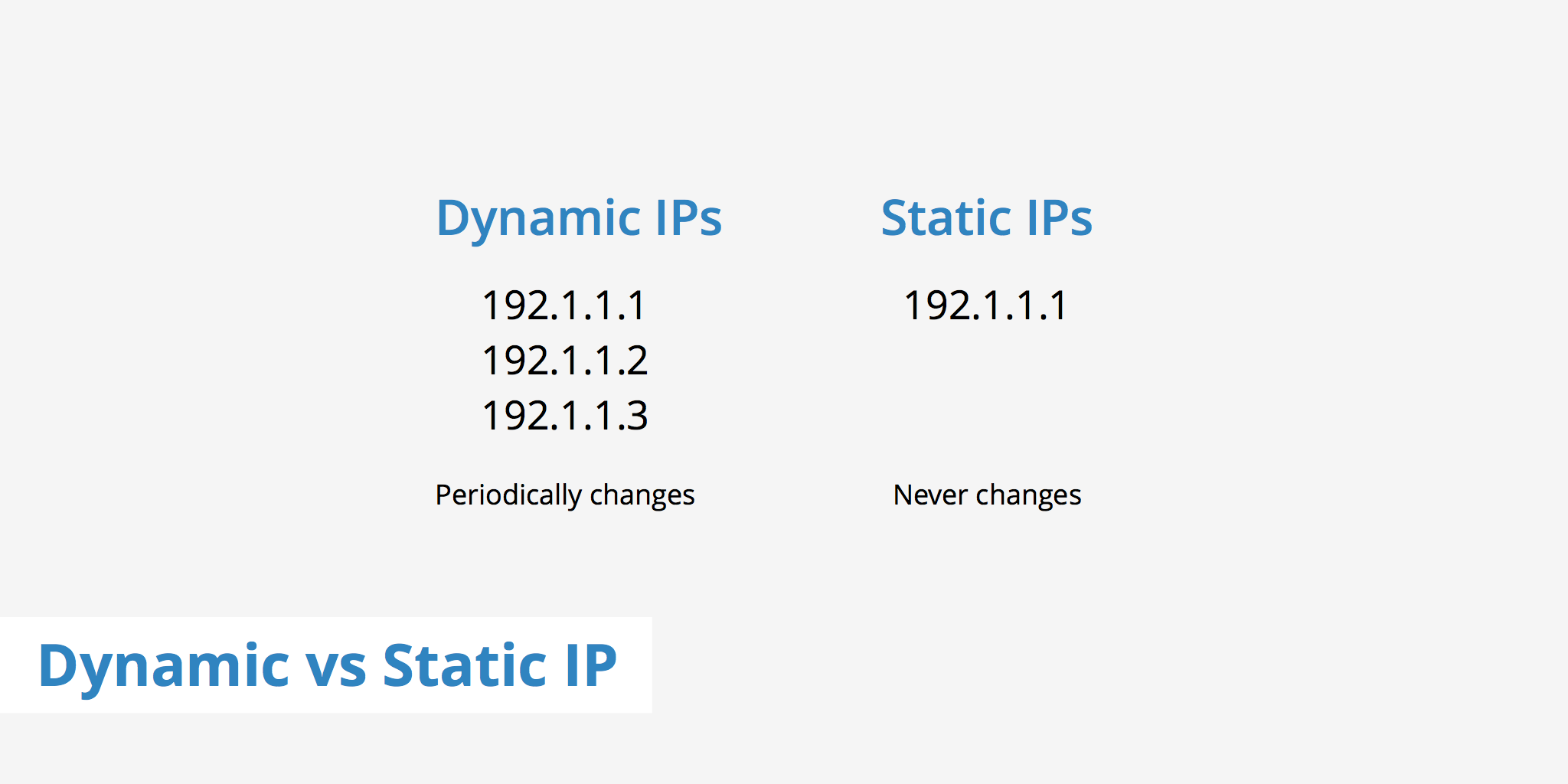What is a Static IP and When Would I Need One?
GoBrolly provides Dynamic Internet Protocol (IP) addresses to our Customers, but sometimes we are asked to provide a Static IP address. Unless you have a technical background it is quite common for people to say, “What does this even mean?” Below are short explanations on IPs, Dynamic vs Static and when you might want to call into the GoBrolly office to discuss your options.
The Internet Protocol (IPv4) Address
An Internet Protocol (IPv4) address is a unique number given to every device on a network. IPv4 addresses help identify computers on the Internet and allow them to communicate with one another. It may be easier to think of it as your street address for your home or business.
Anyone who uses a computer and connects to the Internet has an IPv4 address. IPv4 addresses are formatted as a series of four values separated by period (which is different then an IPv6 address). For example, 192.168.0.1. These are usually assigned by your router, using what is called Dynamic Host Configuration Protocol (DHCP). This is considered your “local” IPv4 address.
Your router’s IPv4 address is assigned by your Internet Service Provider (ISP).
Dynamic IP and Static IP
A dynamic IP address is not permanently tied to any particular device. Instead, they’re used for a specific amount of time and then returned to an address pool so that other devices can use them. This is one reason that dynamic IP addresses are so useful. If an Internet Service Provider (ISP) were to use static IP addresses for all of their customers, that would mean that there’d constantly be a limited supply of addresses for new customers. Dynamic addresses provide a way for IP addresses to be reused when they’re not in use elsewhere, providing Internet access for many more devices than what would otherwise be possible. It is also more cost effective for the end user and helps ensure a connection.
A static IP address is an IP address that is manually configured for a device (versus one that was assigned via a DHCP server.) It is considered “static” because it doesn’t change . . . (exact opposite from dynamic, which does change.)
When should you consider a Static IP versus a Dynamic IP address?
Now we are at the good stuff. As a GoBrolly Customer, when should you consider a Static IP versus a Dynamic IP address?
- You have a gaming console, play peer-to-peer gaming and are having Network Address Translation (NAT) error messages.
- You are set up with home automation and have smart devices you control over the Internet.
- You own a business and have your own File Transfer Protocol (FTP) server.
- You own a business and have email or chat servers, database servers, network equipment or a Virtual Private Network (VPN).
- You have cameras and local Network Video Recorders (NVR)s.
If you want to discuss whether or not you might need a Static IP address, please call our office at 913.837.4678 and talk to one of our friendly professionals.





